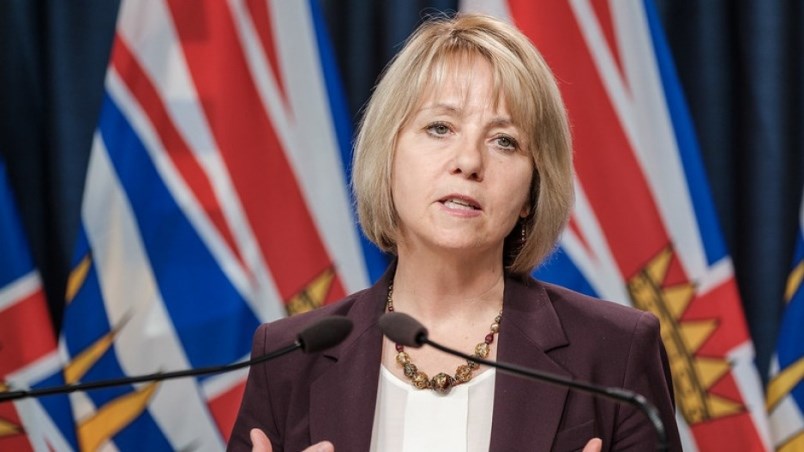British Columbians who received two different COVID-19 vaccines and are concerned about travelling abroad may still not be permitted to travel to the United States this fall.
On Monday (Oct. 11), the U.S. Centers for Disease Control and Prevention said travellers will be able to fly to the States if they've received shots of vaccines approved or recognized for emergency use by the World Health Organization or the U.S. Food and Drug Administration. This means Canadians who were immunized with the Oxford-AstraZeneca vaccine may travel south of the border, too.
But the CDC did not say whether the new rule included people who had received a mixed-dose regimen of approved vaccines.
Provincial Health Officer Dr. Bonnie Henry told reporters in a press briefing Tuesday that B.C. health officials continue to work with the CDC to ensure that highly effective combinations are recognized.
"There are many other countries that are using these mix and match schedules as well," she explained. "So once that is all synthesized I am confident — I can't guarantee it — but I know that my colleagues in the U.S. are looking at these, seeing that it works and seeing that it might be important for the U.S. as well as they're starting to introduce booster doses to augment the effectiveness of different vaccine schedules."
In particular, Henry said there's a great deal of concern about whether a booster dose is needed with the Johnson & Johnson vaccine and whether it would be better to use an mRNA vaccine for a second dose. On a global scale, she noted that other countries would not want to hold back or wait for manufacturers to be able to give people the full protection they need when they're seeing outbreaks.
"So it is really important globally that we're able to use whatever vaccines are available to support people to have good protection. That's one of the things that we're seeing with our program that we've had here in Canada that supports that."
Last week, B.C.'s top doctor thanked locals who didn't hesitate to roll up their sleeves and took the first vaccine that was made available to them.
"For those who have taken AstraZeneca, who've taken the vaccine that was offered to you that and the first opportunity... You did the right thing and I thank you for doing that," she said. "It has made a tremendous difference in the transmission of the virus, and in protecting both yourself and your family and your community."
Canadians travelling outside of the country should check vaccination requirements at their destination, prior to travel. Other countries determine if or what type of proof of vaccination is required and the related benefits that may be provided such as reduced or no testing or quarantine requirements.
Canadians should always check the Government of Canada’s website for travel advice and advisories, as well as the entry and public health requirements of their destination country, before booking a trip.
With files from the Canadian Press



